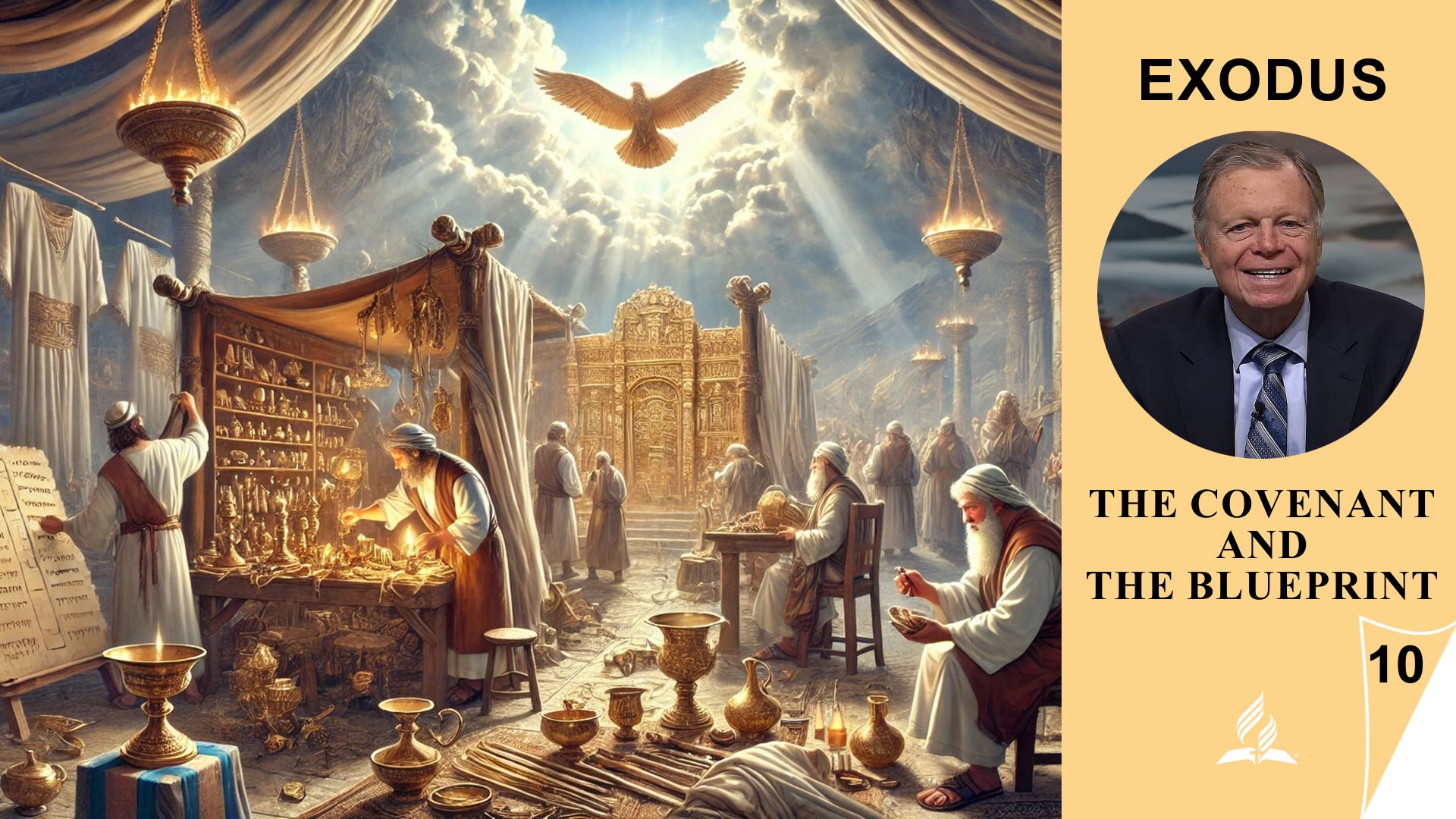Daily Lesson for Monday 1st of September 2025
Read Exodus 24:9-18. What amazing experience were the children of Israel given here?
After the firm reestablishment of the covenant with God, Moses again climbed Sinai. In the beginning of this climb, Moses was not alone. He had the excellent company of 73 Israelite leaders. For the leaders, this was the pinnacle experience: they saw God (theophany), and twice the text underlines this amazing reality. It was also a time for the leaders, by eating together, to seal the covenant with God. This was a banquet, and the God of Israel was their Host. These leaders were deeply honored by God.
In the Middle East during biblical times (and to a certain extent today), eating together was a high experience, great honor, and privilege. It offered forgiveness and formed a bond of friendship. It implied being there for each other and staying together in times of crisis and problems. By eating together, they promised each other, without words, that if something should happen to one party, the other would be obliged to come and help. To be invited to a meal was a special treat that was not extended to everyone.
Meanwhile, to refuse an invitation was one of the worst kinds of insults. This insight helps us to understand the stories in the New Testament in which Jesus Christ was heavily criticized for eating with sinners (Luke 5:30). When believers celebrate the Lord’s Supper, they also establish this close bond with other believers who are sinners like themselves. During this meal, we celebrate the forgiveness and salvation that we have in Jesus (see Matthew 26:26-30, Mark 14:22-25, 1 Corinthians 11:23-29).
Tragically, some of the men who had gone up with Moses later fell into sin and lost their lives (see Leviticus 10:1-2,9). Even though they had such a deep experience with God there, they were not transformed or converted by that experience. What a powerful lesson about how possession of truth and sacred privileges does not automatically mean conversion. Having experienced what they did, these men should have been the last ones to have done what they would later tragically do.
|
Dwell more on the story of these very privileged men, even sons of Aaron. What warning should this give to us, as Adventists, who, with the light we have been entrusted with, are indeed privileged? |
 (2)
(2)



